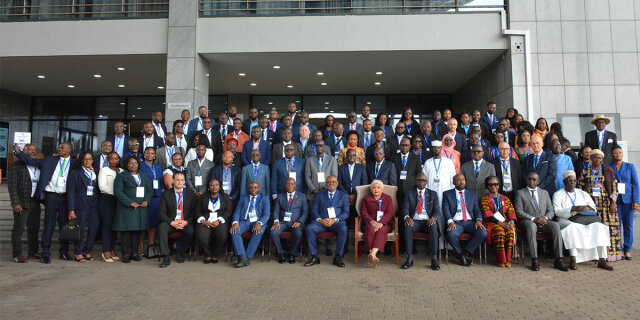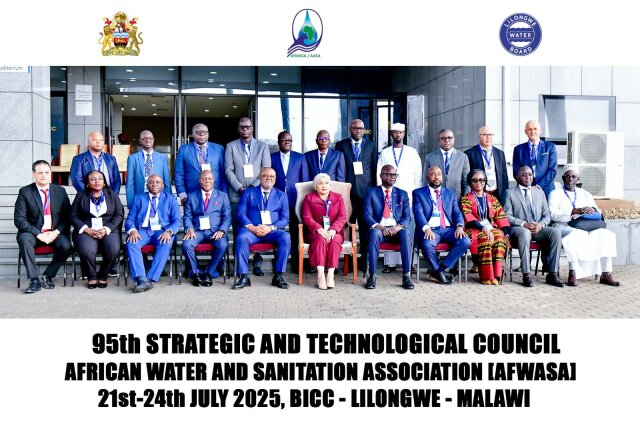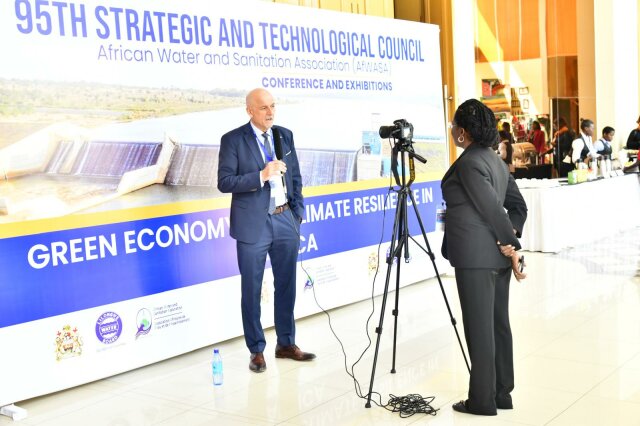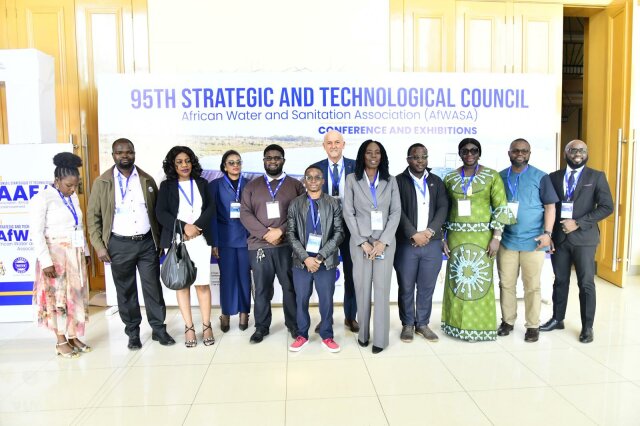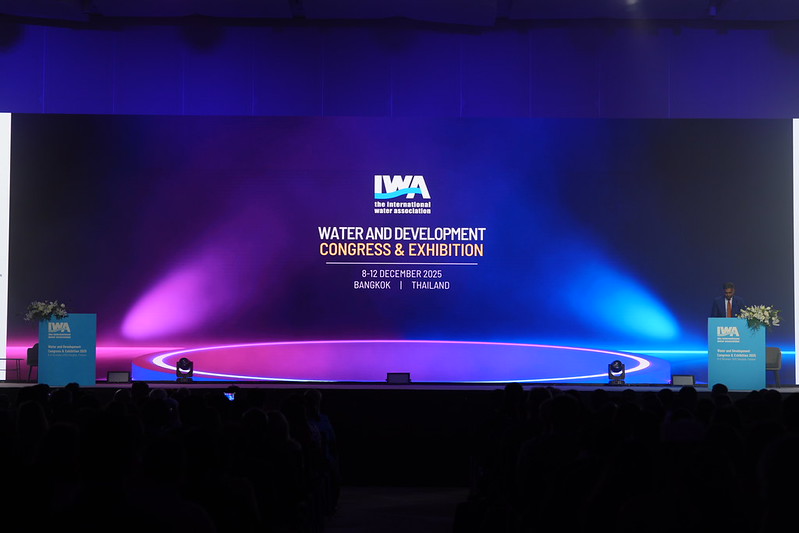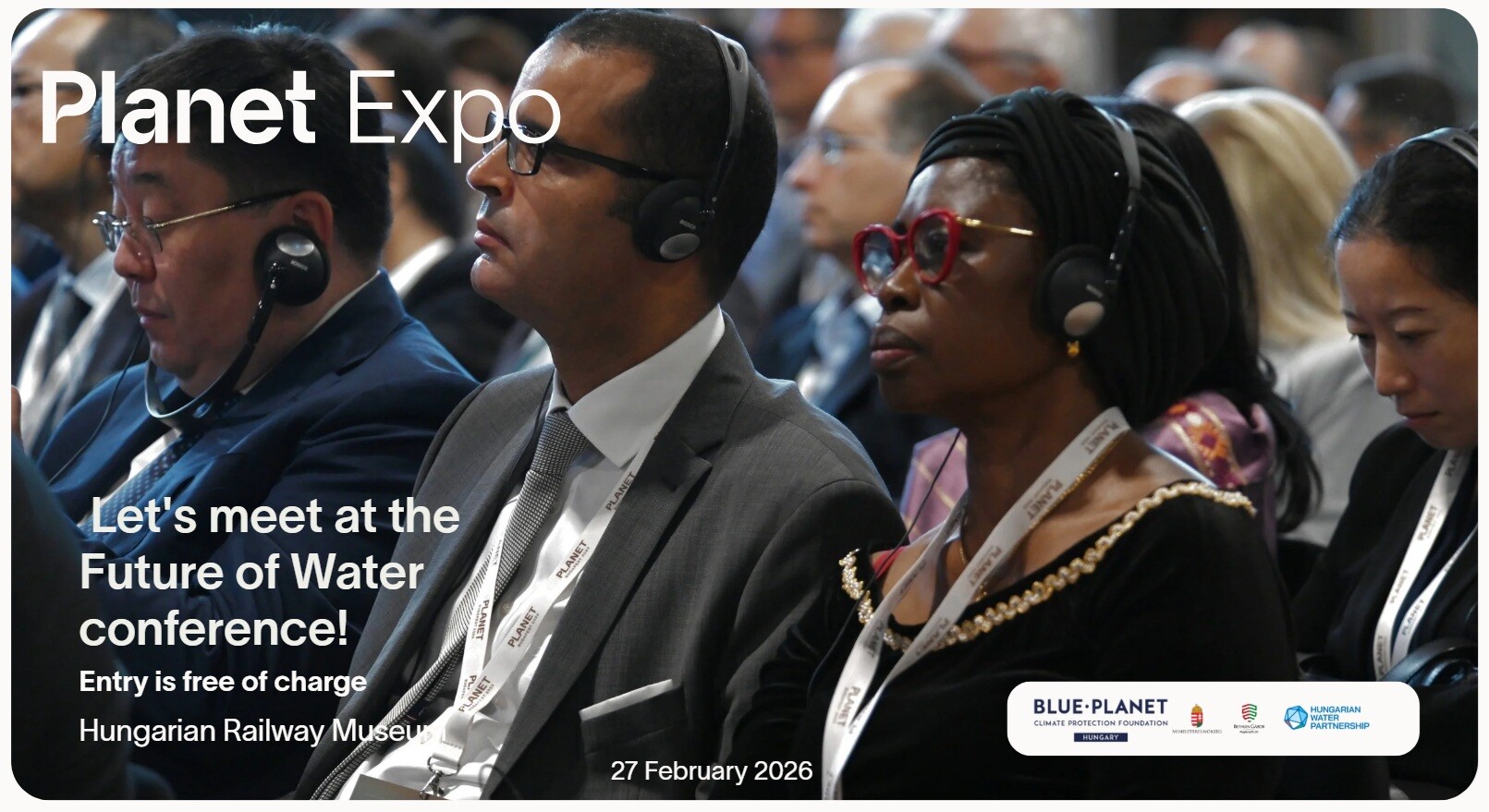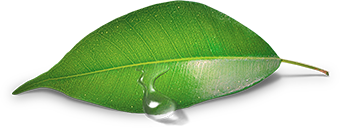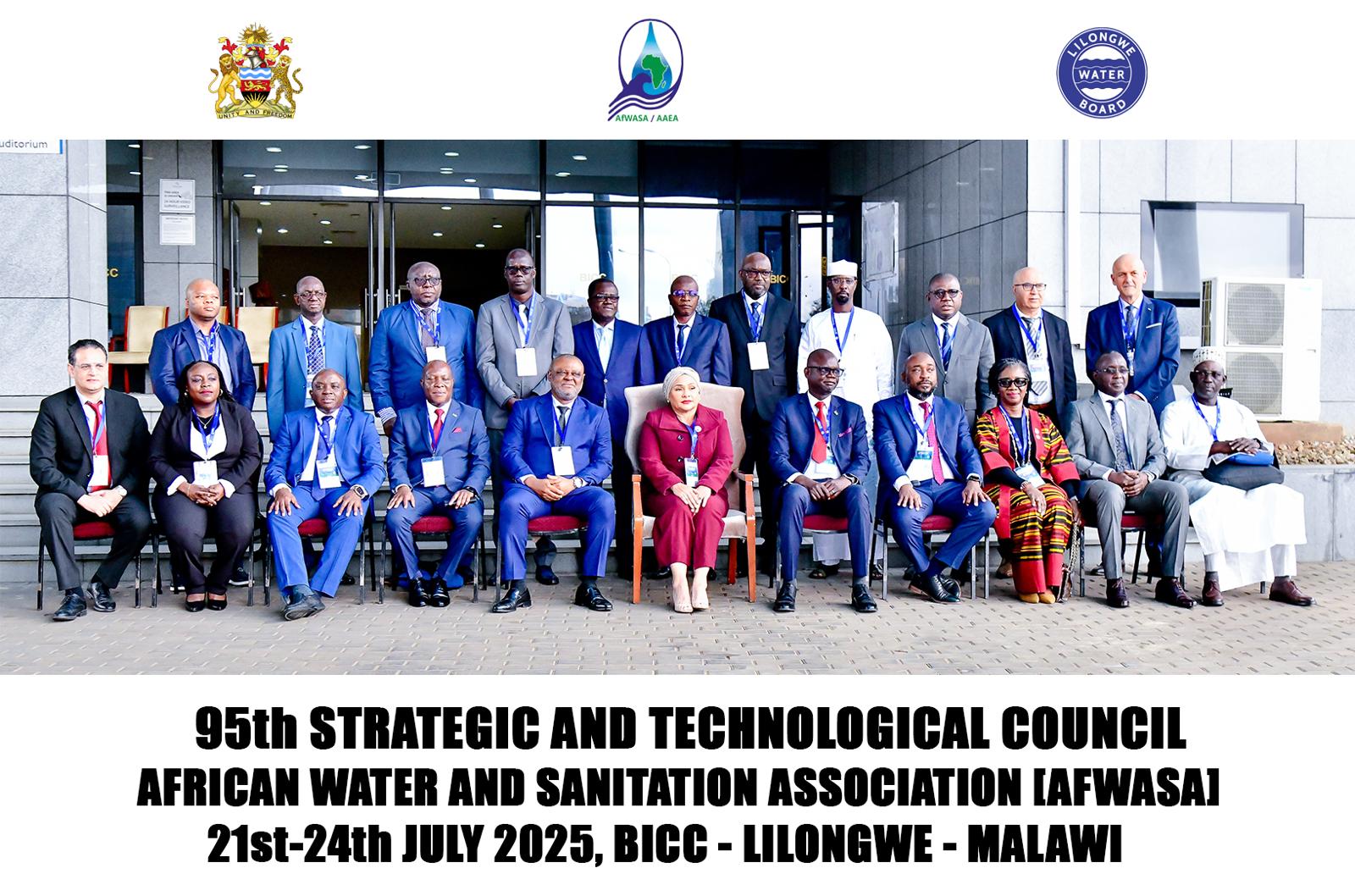
The Hungarian Water Partnership (HWP) was given a prominent opportunity to showcase its solutions at the 95th Session of the Strategic and Technical Council of the African Water and Sanitation Association (AfWASA), held in Malawi between 21 and 24 July 2025.
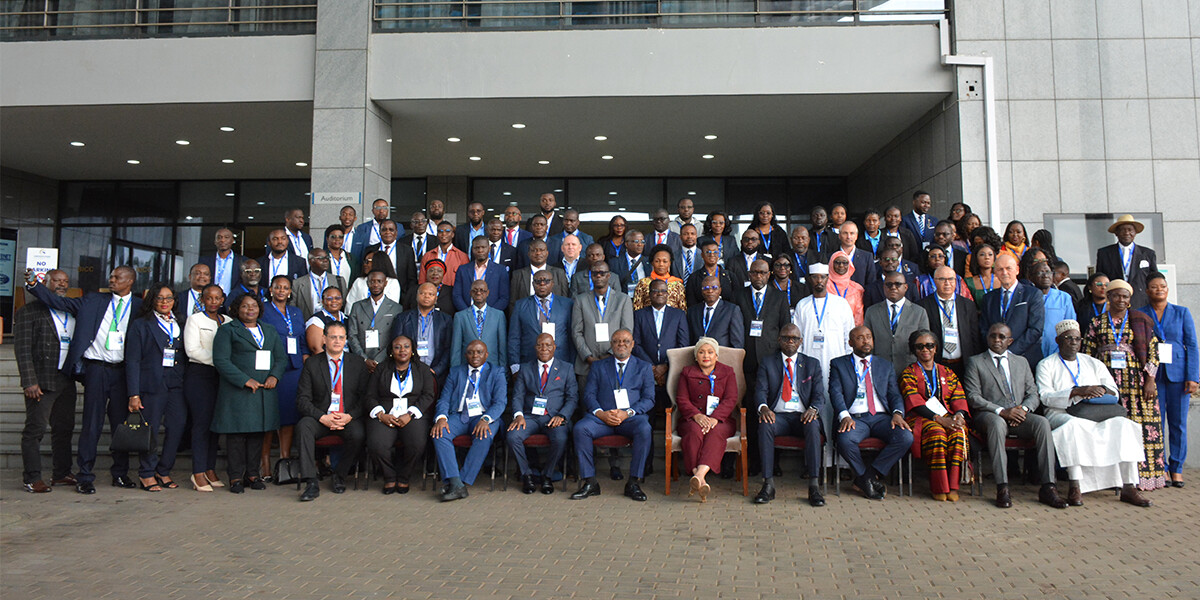
Dr. Károly Kovács’ contribution
Dr. Károly Kovács, PhD, President of HWP and a member of the Strategic and Technical Council (STC) of AfWASA, delivered a presentation during the plenary session and later participated in a panel discussion to share his experiences.
In his presentation, Dr. Kovács highlighted technological and technical innovations, placing special emphasis on solutions for wastewater treatment challenges in Africa—approaches that have been recognised by both the United Nations and the International Water Association (IWA).
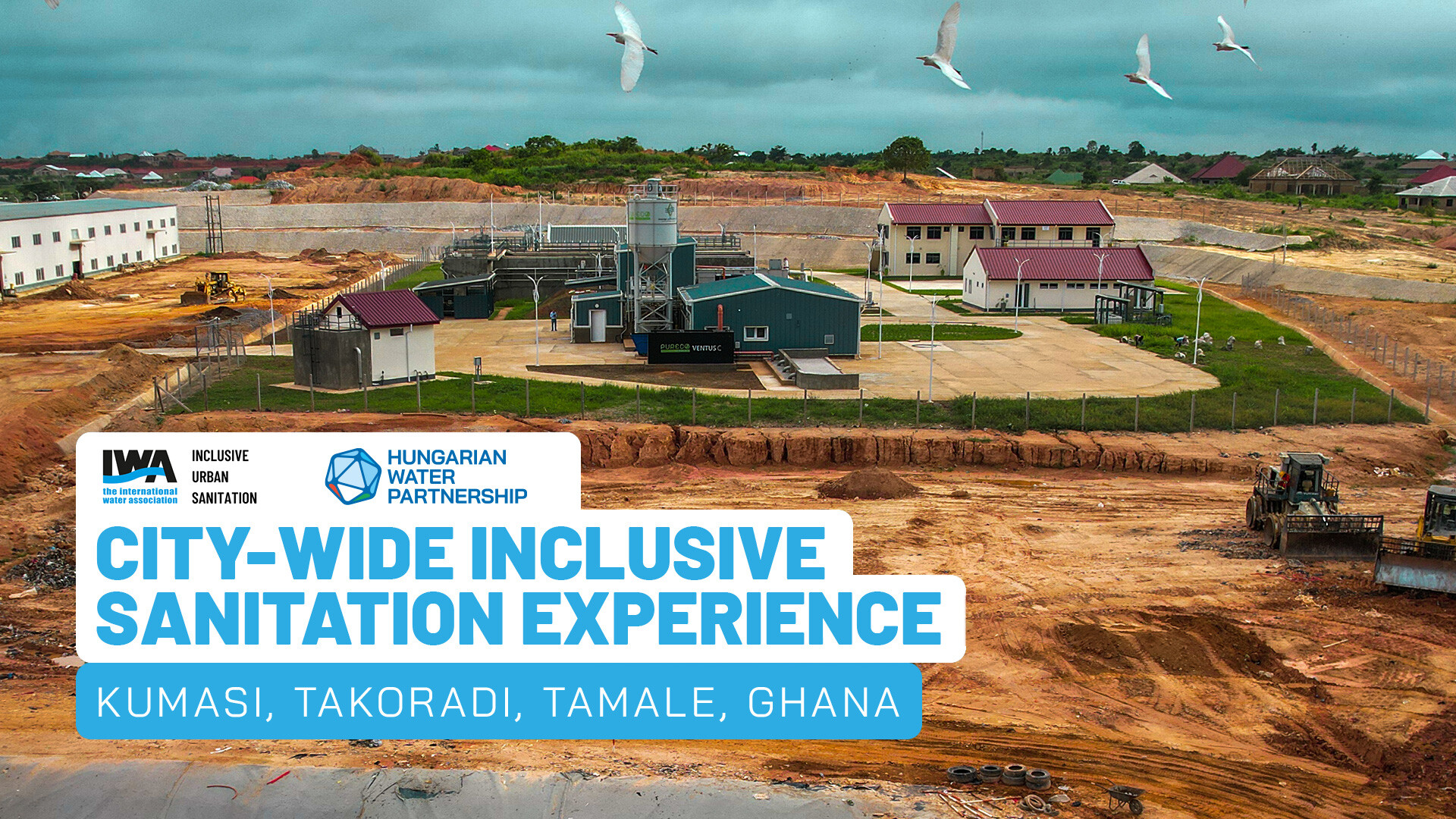
He also presented regulatory development proposals, focusing on reviewing existing wastewater treatment standards used in Europe and the developed world and adapting them to African contexts.
Special attention was given to solutions for treating faecal sludge in unsewered urban areas, including facilities successfully implemented by Pureco Ltd. in several African cities. Since wastewater often arrives at these plants at 10 to 100 times the usual concentration, adjusting international discharge limits to suit local conditions is essential.
The proposals were well received and, on the following day, were further discussed within the sanitation working group, where participants showed great interest and support.
In recognition of his contributions, Dr. Kovács was invited to a special gala dinner organised by African water utility leaders. There, he had the opportunity to present HWP's solutions to top executives from water operators across the continent.
AfWASA’s focus on sanitation
Until 2023, AfWASA—then known as the African Water Association—focused exclusively on water supply issues during its nearly 40-year existence. The organisation’s official name change in 2023 to the African Water and Sanitation Association signalled a new strategic emphasis on sanitation.
Consequently, the association underwent a structural transformation, expanding its original nine water supply-focused working groups to include a new sanitation-focused group. This group addresses topics related to wastewater collection, treatment, and reuse.
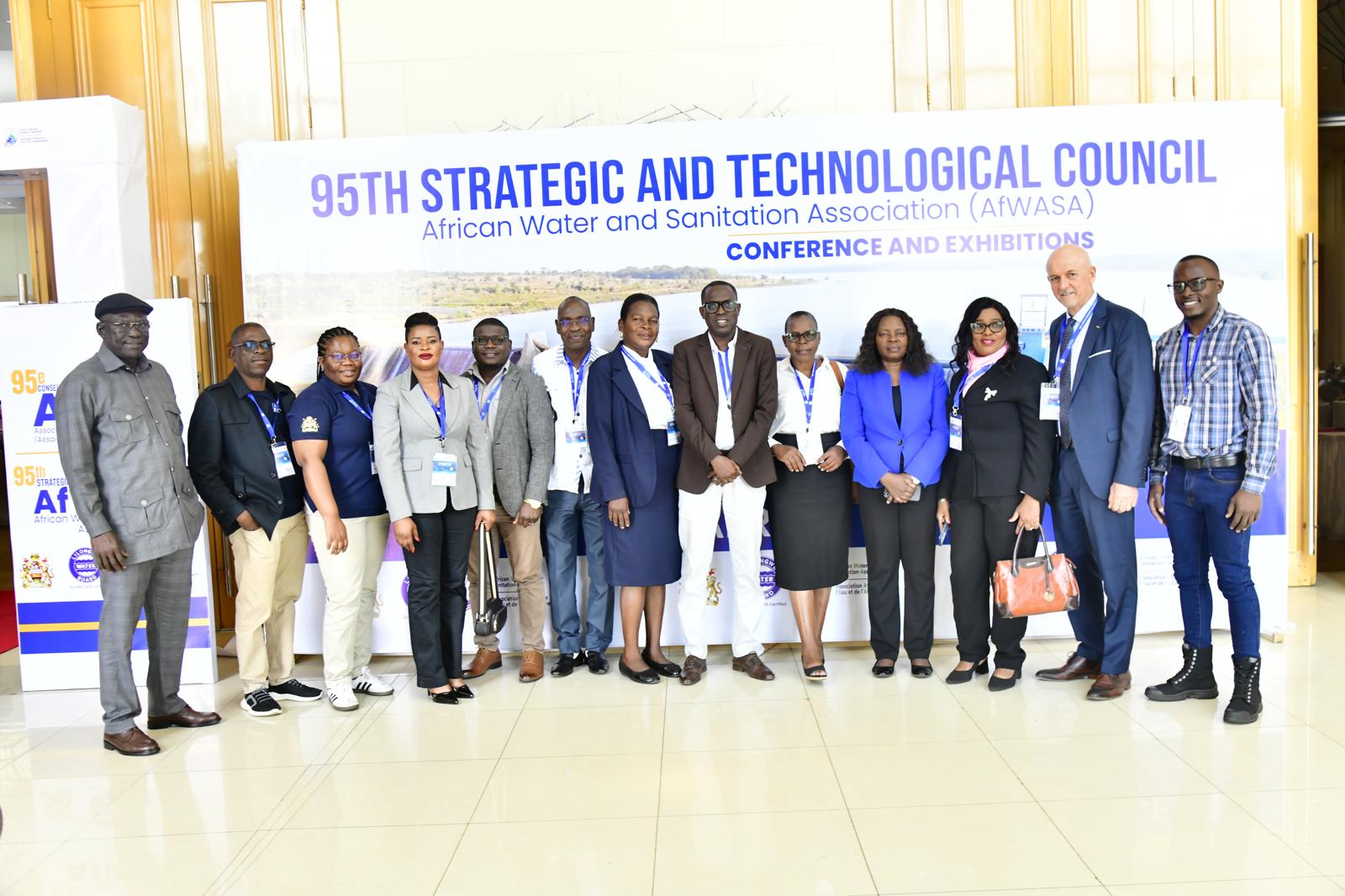
A key figure in this new group is Dr. Károly Kovács, who was appointed as Vice-Chair at the inaugural session and represents the working group on the Strategic and Technical Council. Drawing on his experience with the European Water Association (EWA), he has played a crucial role in defining the scope of sanitation and designing the group’s operational framework.
Structure and scope of the sanitation Working Group
In line with UN principles, the group has defined the concept of sanitation to support the right of all people to dignified hygienic conditions. Key topics include:
- Management and operation of public toilets
- Non-water-based sanitation solutions
- Sewered sanitation, including:
- Wastewater collection, transport, treatment, planning, construction, and operation
- Stormwater collection in combined and separate systems
- Pumping stations
- Design, construction, and operation of wastewater treatment plants
- Regulation, collection, and treatment of unsewered sanitation systems
- Faecal sludge treatment
- Treatment of industrial wastewater
- Sludge treatment and its energy and agricultural reuse
- Rainwater retention, treatment, and reuse
- Financing and public awareness related to sanitation
The working group’s scope and framework were adopted with unanimous support from the STC and AfWASA leadership.
A personal story that moved the audience
The plenary session opened with a powerful moment: the moderator asked the 150 attendees to stand up if they had ever fetched water. About 50 people stood—almost all of them women. The moderator emphasised that water fetching remains a burden largely borne by women worldwide.
He then turned to the 3 men who had stood and called on Dr. Károly Kovács as the third. Dr. Kovács shared a deeply personal story from his childhood: growing up in a village near Mohács, Hungary, he fetched drinking water from a hand pump well. As a teenager, he delivered water by bicycle to agricultural workers. In the 1980s, he installed piped water in his grandparents’ house, and in the 1990s, as a company executive, he led a wastewater treatment project to eliminate Danube pollution in the Mohács region.
His story, rooted in lived experience and professional development, deeply resonated with the audience and was followed by prolonged applause. Attendees were able to connect not only with the professional achievements but also the human journey of a man who built his water career from the ground up.
Looking ahead
Throughout the three-day event, Dr. Kovács also engaged in bilateral discussions with leaders from various national water utilities and authorities, exploring ongoing and future infrastructure development projects.
The next Strategic and Technical Council session will take place in November 2025 in Cameroon, where, in addition to progress reports from the working groups, the program for AfWASA’s 2026 international congress and exhibition—in whose program committee Dr. Kovács has also been invited to participate—will be finalized.

